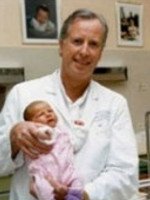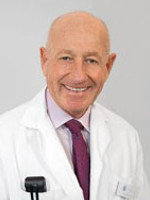All you need to now about Egg Donation
Oocyte donation is the only one way how women can get pregnant in some forms of infertility. However, the implementation of this treatment is prohibited in Germany, that’s why patients have to travel to other countries. Read here how an egg donation works, what risks it poses and what is the legal framework for it.
What is egg donation?
During egg donation, mature eggs are taken from a donor. The eggs are artificially fertilized with the sperm and implanted in the recipient, who carries the child and also wants to raise it. The procedure has risks for both sides.
Basically, there are two ways to get eggs for egg donation:
- Egg sharing and embryo donation. A woman who has undergone in-vitro fertilization herself donates her surplus eggs when she no longer needs them ("egg sharing"). In principle, it is also possible to release already fertilized eggs; this is referred to as an embryo donation. This is useful, for example, if a man does not produce fertile sperm.
- Voluntary donation. A woman voluntarily undergoes hormonal therapy to stimulate the production and maturation of oocytes and to donate eggs. The main purpose of this is to enable another woman to become pregnant.
When does egg donation make sense?
About 20 percent of couples do not get pregnant. In around 40 percent of cases the reason is in female infertility. If the reason is found in defects of the egg cells, the desire to have children can only be fulfilled with an egg donation. Egg donation can be used in such cases:
- A woman became sterile due to medical treatment (e.g. chemotherapy).
- Early beginning of menopause (before the age of 40).
- In advanced age after menopause still want to fulfill a wish for a child.
- A woman has genetic disorders.
- A woman has severe endometriosis.
- Were several failed attempts of an artificial insemination with own egg cells.
Requirements for egg donation
A woman who wants to donate eggs should be as young as possible and undergo a medical check for infectious diseases. This is necessary to exclude possible transmissions of, for example, HIV or hepatitis. Furthermore, she should have good overall health and, of course, be fertile.
As a recipient of the egg donation, the woman with the desire to have a child must have a healthy and functional uterus, so that the implantation of the eggs can be successful.
Procedure of egg donation
Before egg donation, all participants are ideally consulted by psychologist, so that everyone is aware of the scope of the decision and all the consequences of egg donation. Subsequently, the woman who wants to donate the eggs is subjected to a hormonal treatment. This ensures that in their ovaries several eggs mature at the same time. In a normal female cycle, usually only one egg cell can be fertilized.
In the course of the egg donation, the mature oocytes are removed by means of a puncture and fertilized in the test tube with the sperm of the desire father. If it is successful, the fertilized egg cells (zygotes) are frozen. Now the recipient's uterus is being prepared. This is done by a special hormone therapy. This stimulates the increasing and circulation of the uterine lining. When the recipient's uterus is ready, one or more zygotes are used.
How many of the fertilized egg cells are used, the doctor decides in consultation with the expectant parents and taking into account the medical findings and the age of the mother. In most cases, two zygotes are used for egg donation.
After the successful implantation of the fertilized egg at the recipient, she will be accompanied by a gynecologist like any other pregnant woman.
Risks of egg donation
The hormone treatment that the donor has to undergo can be psychologically and physically stressful. The removal of the egg cells themselves is a surgical procedure with the associated risks, such as using of anaesthesia.
The recipient of the egg donation accepts the consequences that may result from the implantation of the egg cells. Because to increase the chance of a successful pregnancy, multiple cells are often used at the same time, just as would be the case with artificial insemination with their own egg cells. This increases the possibility of multiple births.
The emotional burden should not be underestimated. For example, many women do not share with friends or relatives because they are afraid of encountering incomprehension. The attending gynecologist should, however, be informed of how the pregnancy came because pregnant women after egg donation are classified in Germany as high-risk patients.
Legal situation of the egg donation
Many European Union countries have legalized egg donation by doctors in recent years. However, Germany does not allow it, as does embryo donation. This is regulated by the Embryo Protection Act of 1990, which is intended to prevent surrogacy and commercial abuse. Because a woman who donates eggs takes on health risks - in contrast to sperm donation, which is not legally regulated.
Because of prohibition, many couples who want to have children travel to other countries in the EU or the world where egg donation is legal. Popular clinics are in the Czech Republic, Cyprus, Spain, Poland, Ukraine, Russia or the USA. The choice of the country by the couple can also depends on it’s wishes such as preferable colour of skin or facial features of future baby.
After a successful egg donation abroad, the woman in Germany can no longer be prosecuted. The pregnant woman will continue to receive normal care after she returns to Germany. Legal motherhood in Germany is taken over by the woman who gave birth to the child.
What needs to be considered when donating an egg abroad: Depending on the country, the children may not be able to search for their genetic roots later on. Because often the donation runs anonymously.
Egg donation: prospects of success
The egg donors are usually young and therefore offer good conditions for successful fertilization and also development of the fetus. But the constitution and age of the recipient also play an important role. On average, the statistical probability that the egg donation process is successful is 30 to 45 percent.















 Loading ...
Loading ...


